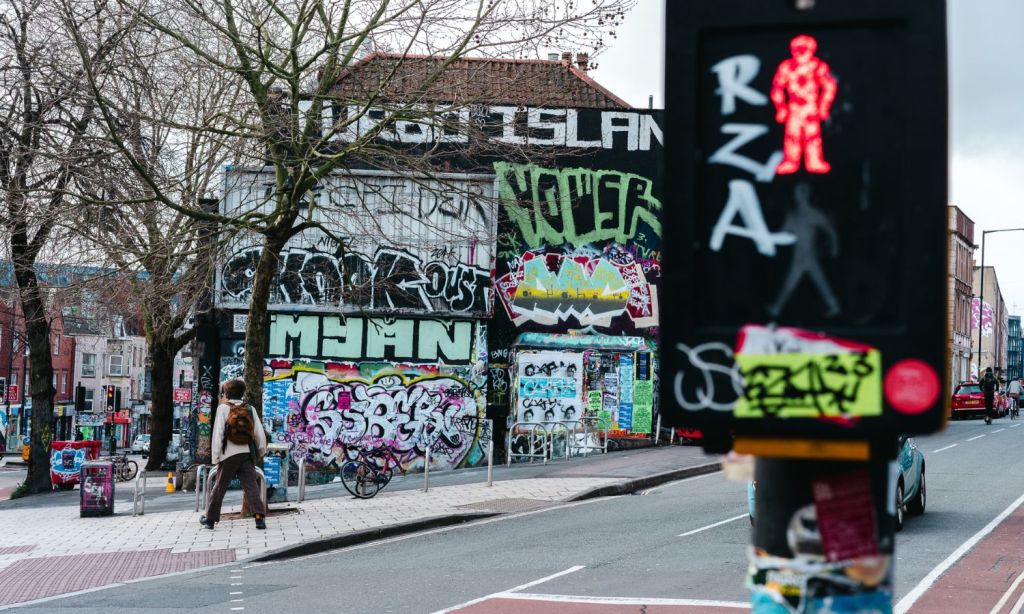Welcome to Where To Next?—a column by our intrepid globetrotting travel writer, Natasha Bazika. Her insatiable curiosity takes her to lesser-known destinations, away from tourist hotspots, and into the heart of diverse cultures and communities. She invites you to be a virtual companion on an exhilarating expedition, venturing beyond the beaten path.
A decade ago, travellers wouldn’t have even considered Bristol as a place to holiday. The UK city curled up on the banks of the River Avon, has always been shrouded in a gentle mist of anonymity — at the hands of their own doing. The city has never liked to brag about its existence. Instead, it bore the echoes of a maritime past, its cobbled streets and historic architecture whispering tales of exploration and industry to anyone who stumbled upon it.
Fast forward to the present, and Bristol has undergone a metamorphosis, emerging from the cocoon of obscurity into a kaleidoscope of creativity and innovation. In the past three years alone, the city has topped the list of must-visit destinations, from Lonely Planet to Condé Nast Traveller. It seems the mist has lifted, revealing to travellers a city that dances on the edge of tradition and trend, where history intertwines with the pulse of modern life.
The once-muted streets burst with a riot of colours, courtesy of world-renowned street artists who have turned buildings into canvases, best explored on a walking tour. The Clifton Suspension Bridge, an enduring symbol, still stands tall, connecting the city’s past with its present. There’s even a cider growth spurt, if you will, happening right now, adding to the city’s allure and industrial charm.
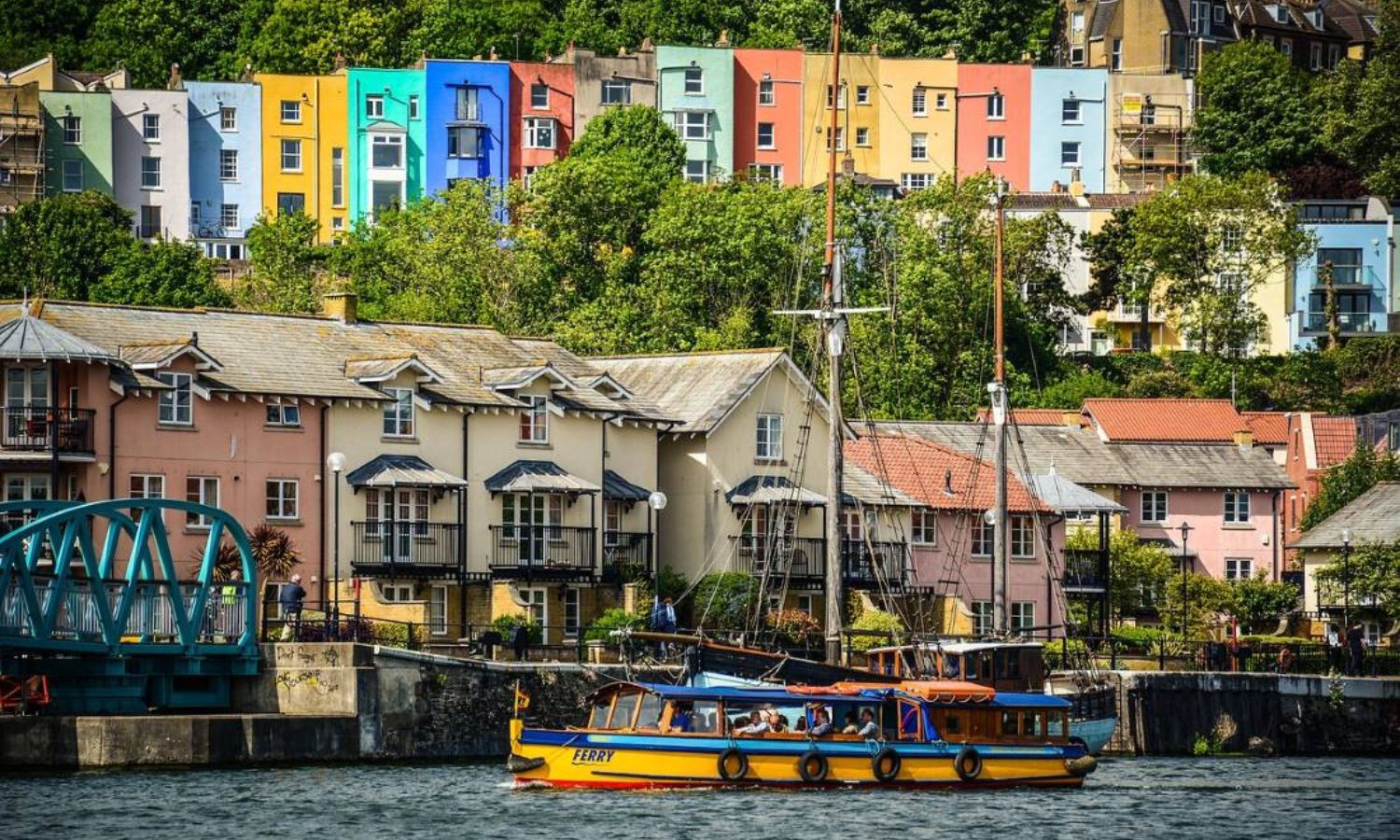
Maritime Heritage
Bristol’s maritime heritage is deeply woven into its fabric, and nowhere is this more evident than at the historic harborside. A stroll along the waterfront provides an engaging journey through time, offering glimpses of Bristol’s role in the transatlantic slave trade and its subsequent transformation into a bustling port.
Start your exploration at the SS Great Britain, a marvel of maritime engineering designed by Isambard Kingdom Brunel. This iconic ship, now a museum, takes visitors on a voyage through history, allowing them to experience life on board during the Victorian era.
As you continue along the harborside, you’ll encounter the M Shed, a museum housed in a former transit shed that showcases Bristol’s diverse history through exhibits on industry, technology, and everyday life.
The harbour itself is lined with cafes and restaurants, so you’re never short of options, from sushi to tapas and a cold glass of cider.
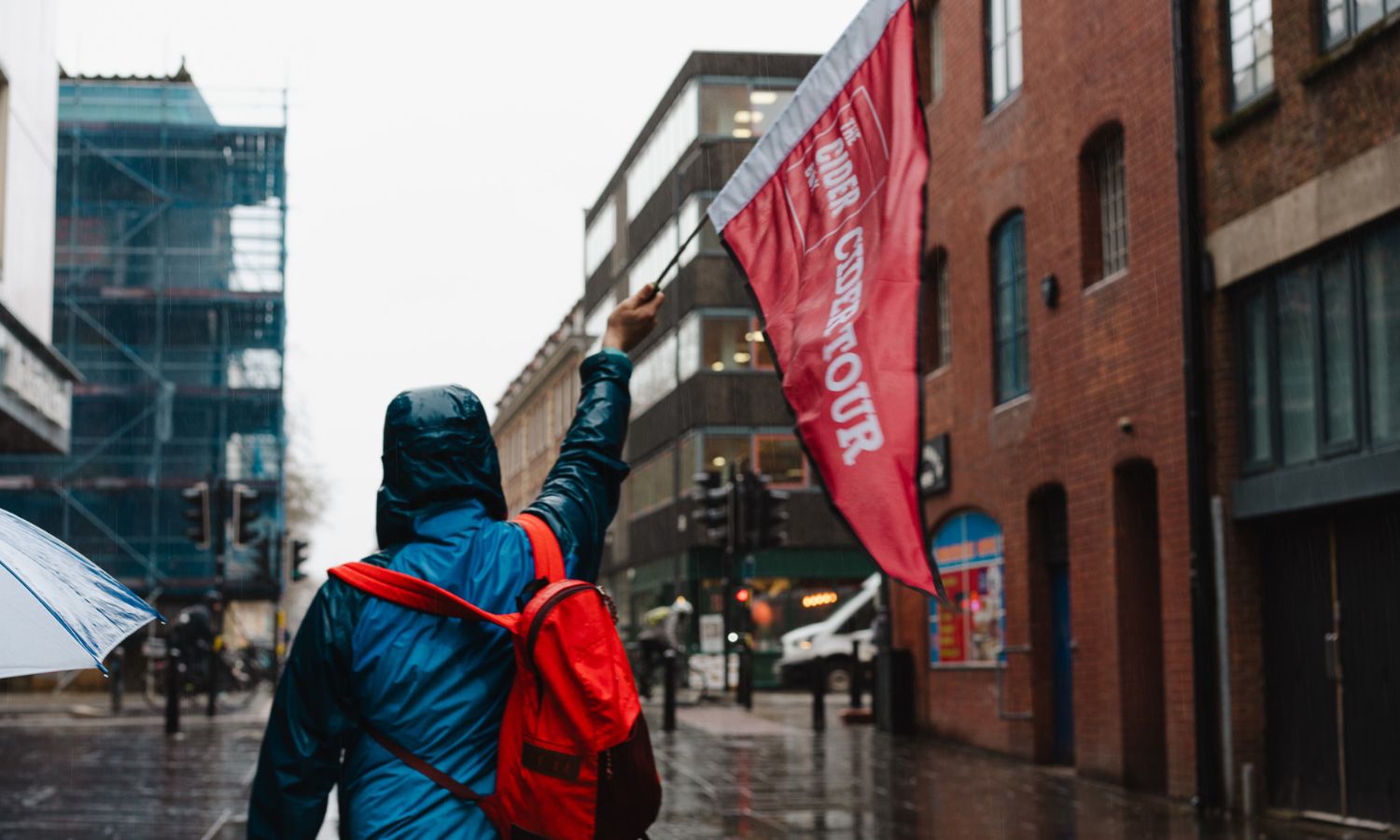
Cider Boom
Bristol’s streets are buzzing with a newfound energy, and at the heart of this effervescent revival is the city’s cider boom. Fast becoming a focal point of local culture, the cider scene in Bristol has experienced a surge that resonates with both tradition and innovation. Luckily for me, I met the resident cider expert, Dan Heath, owner of The Cider Box.
The Cider Box is exactly as it sounds — a shipping container set down on Wapping Wharf, turned bottle shop, peddling modern craft cider from the finest international and local producers. It’s also the meeting spot for Cider Box tours, where Heath escorts you around the harbour, stopping in at local cider hot spots, from a historic pub on the corner to a bar in a moored ship.
Along the way, hear tales of maritime life, why the row of houses on the hill are coloured, and plenty of cider talk. There’s even a tasty pitstop at a cheesemonger, but I don’t want to reveal too much. It’s better to be surprised on the tour.
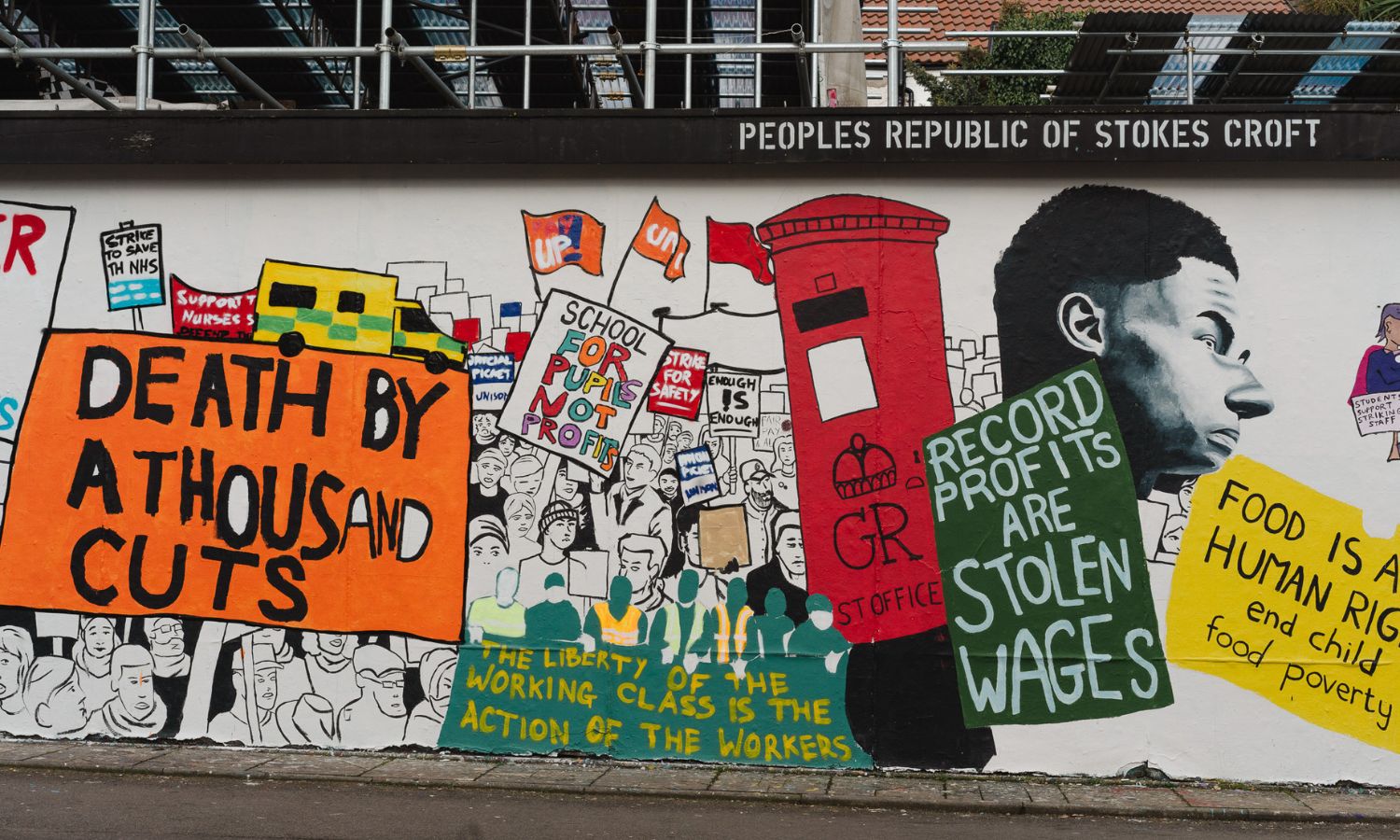
Street Art Mecca
Bristol breathes life into its streets through vibrant colours and thought-provoking images, some downright political statements, others that will make your jaw drop at the sheer size. Even if you’re not into art, a walk around Bristol will change that.
What makes Bristol’s street art scene different is its symbiotic relationship with the community. Many pieces engage with local issues, reflecting the pulse of the city. It’s a form of self-expression that invites dialogue and introspection, fostering a sense of collective identity and acting as a global beacon for artists seeking a canvas beyond the conventional gallery walls. We all know it as the birthplace of Banksy.
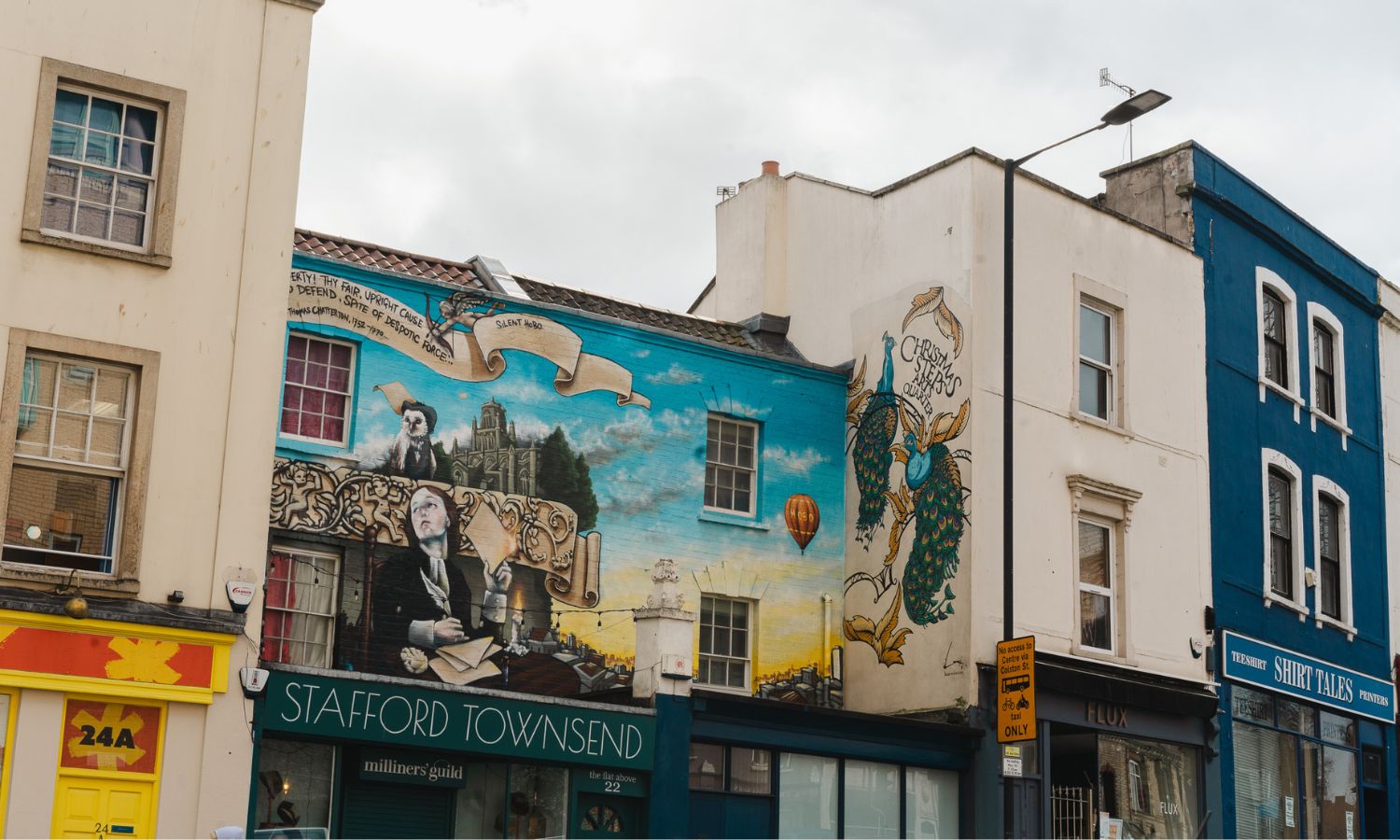
Speaking of Banksy, Where the Wall is a self-guided Banksy street art tour you can do through your phone, as long as you have an internet connection and headphones. As you navigate Bristol’s streets, you’ll find that every mural, stencil, and paste-up contributes to the city’s cultural identity, as narrated by Banksy’s mentor, John Nation.
The voice in your head (or ear, in this case) leads you through the labyrinth of painted alleys and streets, providing context, stories, and the significance behind each piece. You’ll even pass through suburbs, showcasing a decentralised yet equally compelling street art scene. Set your eyes on iconic pieces like the Mild, Mild West by Banksy in Stokes Croft or Nelson Street, where buildings become galleries and alleyways transform into open-air exhibitions.
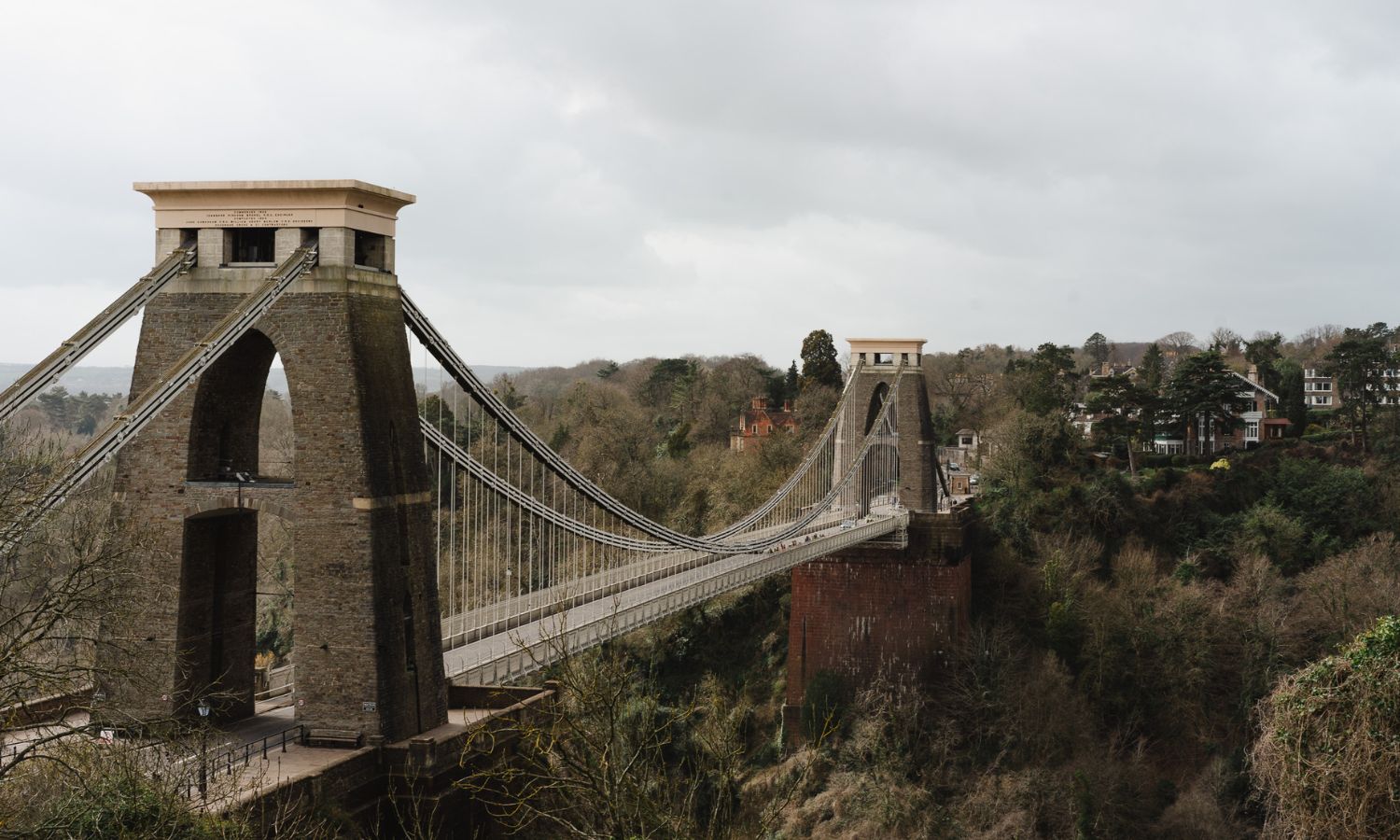
Clifton Suspension Bridge and Beyond
No visit to Bristol is complete without at least seeing the Clifton Suspension Bridge. Spanning the Avon Gorge, this iconic bridge by Isambard Kingdom Brunel is a hotspot for views of the surrounding countryside, not to mention the bridge itself is a feast for the eyes.
After crossing the bridge, explore the charming neighbourhood of Clifton, which looks as if it has been frozen in Georgian time. The architecture, the shops, it’s everything you want from a historic village, with the buzz of a small city. Here, follow cobblestone streets to quaint British cafes, boutique clothing shops, and artisanal stores selling everything from cheese to vintage jewellery.
One cannot speak of Clifton without mentioning the serene expanses of greenery. The Clifton Downs, a sprawling open space, provides a natural retreat for residents and visitors. Perfect for picnics, leisurely walks, or a game of frisbee, the Downs is a sanctuary from the urban hustle for the locals.
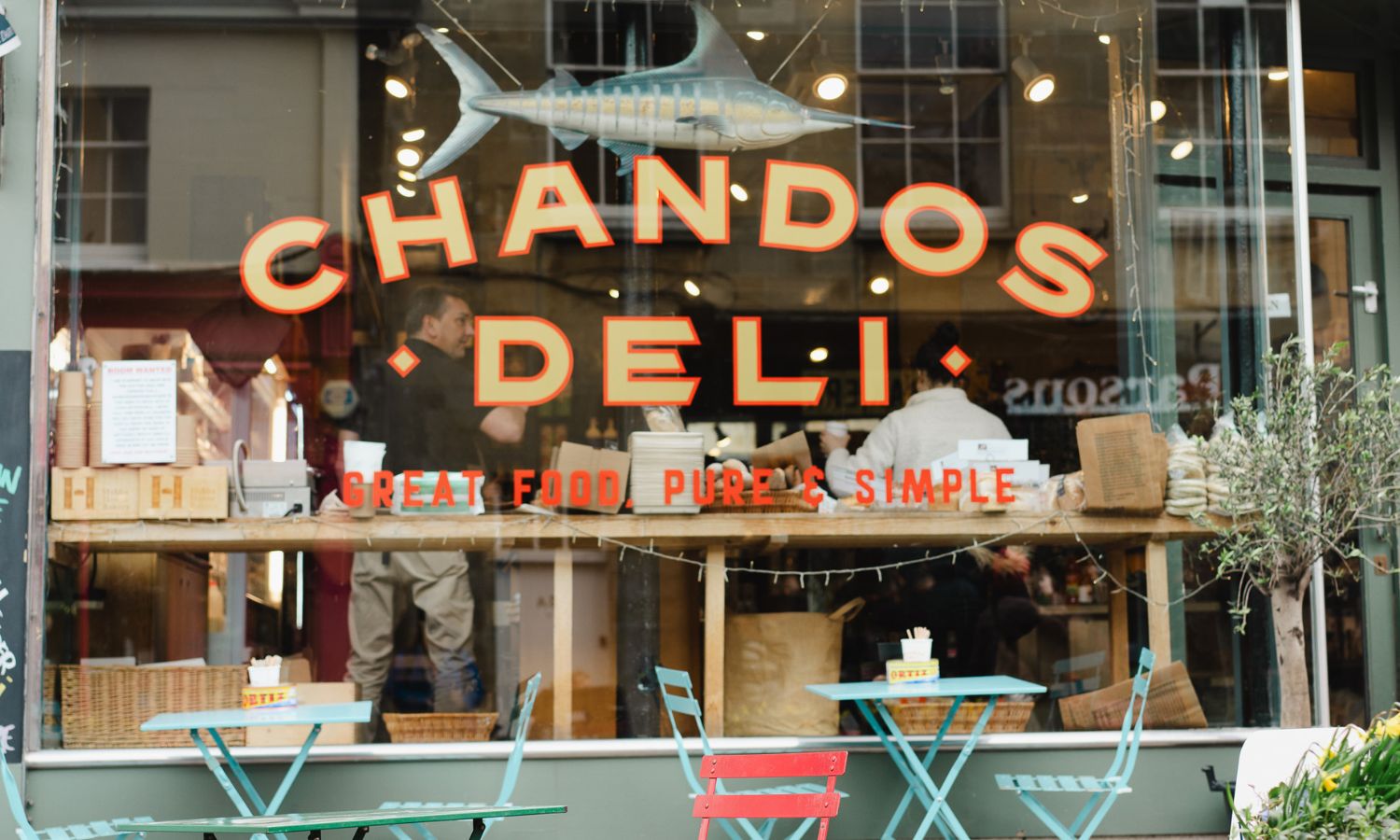
Another lure to Clifton is the residential streets lined with Georgian and Victorian townhouses. It’s a photographer’s dream. Think grand facades, colourful walls, and whispy trees lining the pavement. It’s particularly animated during Autumn when hues of oranges, yellows, and reds litter the ground.
As for food, Clifton has no shortage of historic institutions and restaurants serving global cuisines in a modern setting to rival the best-designed dwellings in London. However, if you’re short on time, there’s only one place you need to know about, and that’s Clifton Sausage.
With pine tables, candles, and quirky art, it feels more like a living room in a Scotland wood cabin than a restaurant. The menu is all locally sourced, focusing on meat from Somerset and Gloucestershire and seafood from Devon and Cornwall. You’ll find traditional British dishes, including the signature sausage section, which has more than six sausages, including a “today’s sausage” special. The sausage-tasting plate is great for groups and those who can’t decide. Regardless, all sausages come with mash or champ (mash with fresh spring onions) and onion gravy.
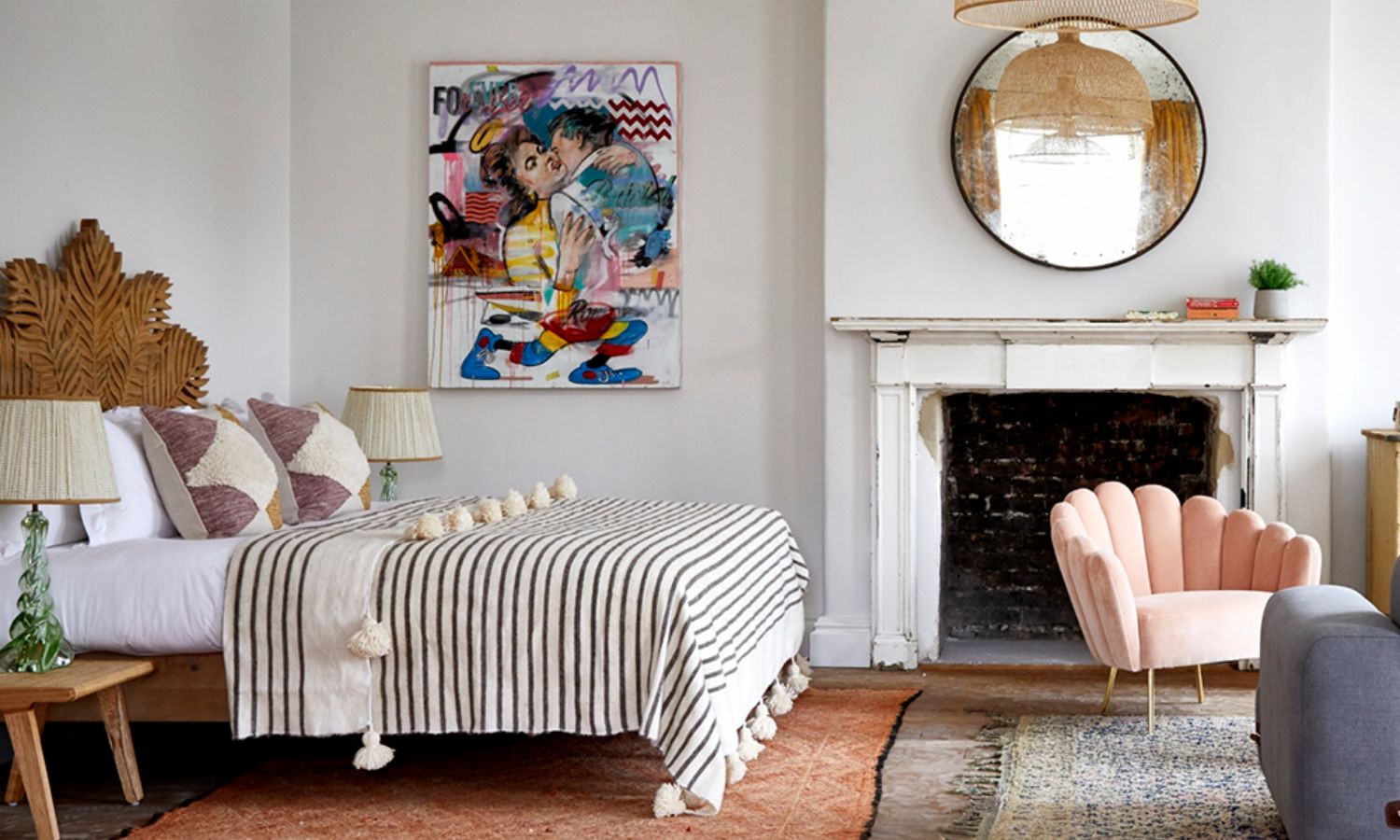
Where to Stay
When it comes to finding a place to base yourself, skip the stiff, clinical hotel chains for something boutique, independent, and a little quirky. Artist Residence Bristol is a new hotel that blends rebellious art with vintage chic. It was a former boot factory, although any remnants of its past life are subtle, melded into the artwork or decor, which in itself is bright and colourful.
Guests are on the doorstep of Portland Square, just a few minutes walk from the city centre, where you will find all the restaurants and street art. However, it doesn’t take long to figure out that the hotel itself is a hotspot for diners and drinkers. The Boot Factory bar and restaurant is an all-day hangout that has everything from a full gourmet breakfast to lounges to curl up with a good book or a late-night menu fuelled by craft cocktails and bar staples, like burgers and Korean fried chicken.
Upstairs, each room is individually designed and peppered with limited edition art prints and vintage and reclaimed furniture — along with modern tech. You can choose from spacious suites if you need the room, city crash pads, and single bedrooms, with just the basics — catering to all budget types. It’s the kind of place where there’s a wall of keys behind the reception, and each key is a different design. It’s old school but refreshing.
Related: The Surprising UK Foodie Destination You’re Probably Overlooking
Related: Suborbital Flights: Fly From Sydney to London in Less Than Two Hours
Read more stories from The Latch and subscribe to our email newsletter.


